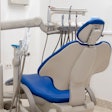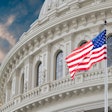
In response to February's U.S. Supreme Court ruling in North Carolina State Board of Dental Examiners v. Federal Trade Commission (FTC), the FTC's Bureau of Competition issued guidance on September 14 on how state regulatory boards controlled by market participants can avoid antitrust litigation.
After the court decision, the FTC received requests for advice from many state officials on antitrust compliance for state boards that regulate occupations. Specifically, this guidance (which is not mandatory), focused on two questions:
- When does a state regulatory board require active supervision to invoke the state action defense?
- What factors are relevant to determining whether the active supervision requirement is satisfied?
"State dental boards can regulate dentists, subject to the requirements of antitrust laws," an FTC spokesperson told DrBicuspid.com. "The boards can initiate an action in state court against a person alleging unauthorized practice of dentistry."
While the guidance notes that a state may avoid "all conflict with the federal antitrust laws by creating regulatory boards that serve only in an advisory capacity, or by staffing a regulatory board exclusively with persons who have no financial interest in the occupation that is being regulated," in practice, the report notes, "doctors commonly regulate doctors, beekeepers commonly regulate beekeepers, and tour guides commonly regulate tour guides."
Case ruling
Earlier this year, the U.S. Supreme Court upheld the Federal Trade Commission's determination that the North Carolina State Board of Dental Examiners violated the federal antitrust laws by preventing nondentists from providing teeth-whitening services in competition with the state's licensed dentists.
As a majority of members of the board were practicing dentists, the FTC argued successfully that "they have a private incentive to limit competition from nondentist providers of teeth whitening services." The board, supported by the ADA, argued that it was a state agency, and, therefore, exempt from federal antitrust laws, which the Supreme Court rejected.
"The Court holds today that a state board on which a controlling number of decision-makers are active market participants in the occupation the board regulates must satisfy Midcal's [Cal. Retail Liquor Dealers Ass'n v. Midcal Aluminum, Inc., 445 U.S. 97 (1980)] active supervision requirement in order to invoke state-action antitrust immunity," according to Justice Anthony Kennedy's majority decision.
The guidance repeats this ruling and notes that "[a]ntitrust issues may arise where an unsupervised board takes actions that restrict market entry or restrain rivalry."
Key points
The guidance cautions that, while antitrust analysis of any kind is fact-specific and context-dependent, it identifies overarching legal principles governing "when and how a state may provide active supervision for a regulatory board."
"We are not suggesting a mandatory or one-size-fits-all approach to active supervision. Instead, we urge each state regulatory board to consult with the Office of the Attorney General for its state for customized advice on how best to comply with the antitrust laws," the FTC wrote.
"Reasonable restraints on competition do not violate the antitrust laws, even where the economic interests of a competitor have been injured," the guidance notes. The example given is that of a state dental board prohibiting member dentists from engaging in untruthful or deceptive advertising.
However, it is no defense to antitrust scrutiny if the board members themselves are not directly or personally affected by the challenged restraint, according to the FTC. If, for example, the North Carolina dental board had been composed of orthodontists, their control of the board would "nevertheless trigger the requirement for active state supervision," the guidance states. "This is because these orthodontists are licensed by, and their services regulated by, the NC Dental Board."
Assembly control
The North Carolina dental board does not have the authority to change the makeup of its members, Bobby White, the board's chief operations officer, told DrBicusipid.com.
"The composition of the board and the method of selecting board members is completely determined and controlled by the North Carolina General Assembly," he said. The Legislature meets again in April 2016, when it could consider changes to North Carolina's Occupational Licensing Boards.
The FTC guidance includes a long example of how "satisfactory active supervision of a state board regulation designating teeth whitening as a service that may be provided only by a licensed dentist, where state policy is to protect the health and welfare of citizens and to promote competition" could play out.
This scenario is led by the creation of an executive agency created by a state legislature to review regulations recommended by the state regulatory board. In this scenario, recommended regulations become effective only following agency approval.
The ADA said it is evaluating the new guidance document.



















